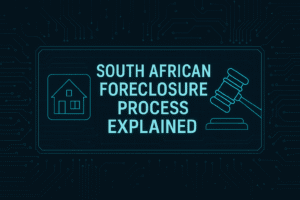Navigating Debt Mediation Services for Homeowners: A Comprehensive Guide
In today’s economy, many homeowners find themselves grappling with financial challenges. Whether due to job loss, medical emergencies, or unexpected expenses, debt can accumulate quickly and become overwhelming. Fortunately, there are solutions available, one of which is debt mediation services. This guide provides a detailed overview of what debt mediation services entail, how they can benefit homeowners, and what to consider when seeking assistance.
What is Debt Mediation?
Debt mediation is a process where a neutral third party, known as a mediator, assists individuals in negotiating their debts with creditors. Unlike bankruptcy, which can have long-lasting effects on one’s credit score and financial future, mediation aims to reach a mutually agreeable solution without going to court. This process can help homeowners struggling with mortgage payments, credit card debt, or other financial obligations. Learn more about how to navigate debt challenges and explore alternatives to debt mediation.
How Does Debt Mediation Work?
- Initial Consultation:
The process typically begins with an initial consultation. Homeowners discuss their financial situation with a mediator, who will assess their debts, income, and expenses. This step is crucial in determining the best course of action. - Gathering Information:
The mediator will collect all relevant financial documents, including loan agreements, credit card statements, and income verification. This information helps understand the total debt load and identify potential negotiation points with creditors. - Negotiation:
The heart of the mediation process involves negotiating with creditors. The mediator will communicate on behalf of the homeowner, advocating for more favorable terms, such as lower interest rates, reduced monthly payments, or even debt forgiveness. The goal is to find a solution that works for both parties. - Agreement:
If an agreement is reached, the mediator will help draft a settlement or repayment plan. This document outlines the terms agreed upon by both the homeowner and the creditor, providing a clear roadmap for repayment. - Follow-up:
After the agreement is finalized, the mediator will follow up to ensure that all parties are adhering to the terms. This step can help prevent misunderstandings and further complications down the line.
Benefits of Debt Mediation for Homeowners
Debt mediation services offer several advantages for homeowners facing financial difficulties:
- Cost-Effectiveness:
Compared to bankruptcy or other legal proceedings, debt mediation is typically less expensive. Many mediators work on a sliding scale or may charge a flat fee, making it a more accessible option for homeowners. - Preservation of Assets:
Mediation allows homeowners to negotiate their debts without the risk of losing their homes. In contrast, bankruptcy can sometimes lead to the liquidation of assets, including property. Learn more about how to protect your property during debt resolution with our tips and strategies. - Improved Communication:
Having a neutral mediator facilitates better communication between homeowners and creditors, reducing the stress and anxiety that often accompany debt negotiations. - Customized Solutions:
Every homeowner’s financial situation is unique. Debt mediation allows for personalized solutions that cater to individual needs, which can lead to more sustainable repayment plans. - Confidential Process:
Unlike court proceedings, debt mediation is a private process. Homeowners can address their financial issues without public scrutiny.
Considerations When Seeking Debt Mediation
While debt mediation can be an effective solution, homeowners should consider several factors before proceeding:
- Choosing the Right Mediator:
Not all mediators are created equal. Homeowners should look for certified professionals with experience in debt mediation. Checking reviews and seeking recommendations can help in finding a reputable mediator. - Understanding Fees:
It’s essential to understand the fee structure of mediation services. Some mediators charge by the hour, while others may have flat fees or percentages based on the debt amount. Homeowners should ensure they can afford these costs before committing. - Impact on Credit Score:
While mediation is generally less damaging than bankruptcy, it can still affect a homeowner’s credit score. Homeowners should inquire about how the mediation process will impact their credit and what steps they can take to mitigate any negative effects. Our article on how to improve your credit score for mortgage approval provides valuable insights into rebuilding credit after debt mediation. - Realistic Expectations:
Homeowners should approach mediation with realistic expectations. While mediators can often negotiate favorable terms, there is no guarantee that creditors will agree to all requests. Understanding this can help homeowners stay grounded during the process. - Seeking Financial Counseling:
In addition to mediation, homeowners may benefit from financial counseling to develop better money management skills and budgeting strategies. This holistic approach can lead to long-term financial stability.
Conclusion
Debt mediation services can provide a lifeline for homeowners struggling to manage their debts. By offering a structured and supportive environment for negotiation, these services can help homeowners regain control of their financial situations, preserve their homes, and work towards a debt-free future. If you find yourself overwhelmed with debt, consider exploring mediation as a viable option on your path to financial recovery. Always do your research, seek professional advice, and take the first step towards a brighter financial future today.
For more information on managing debt and maintaining home ownership, visit our debt relief resources page.



